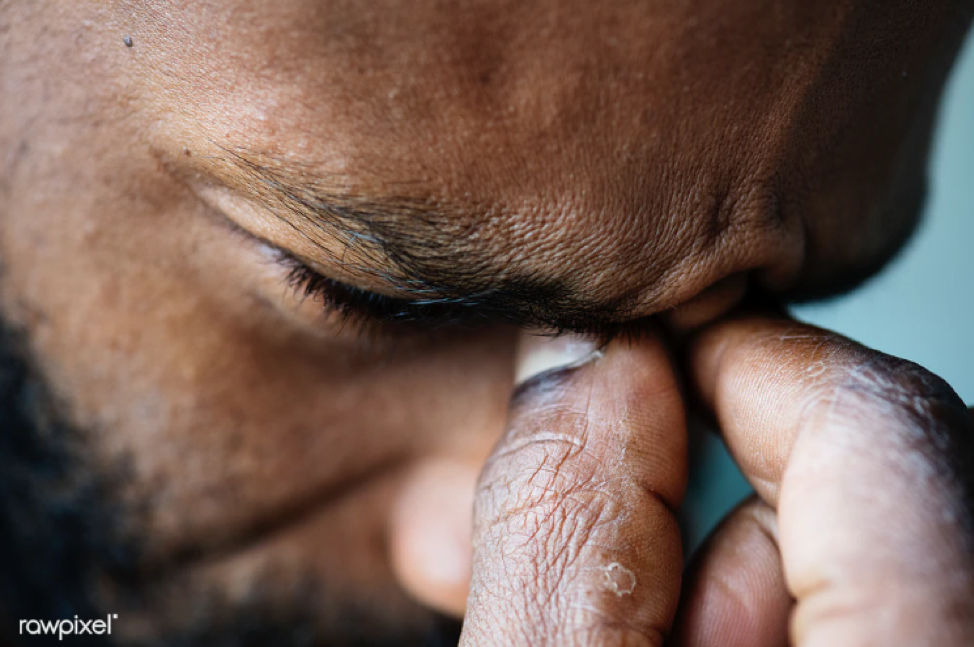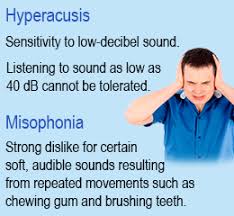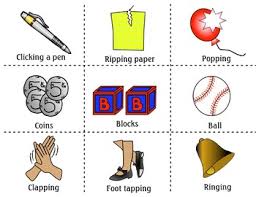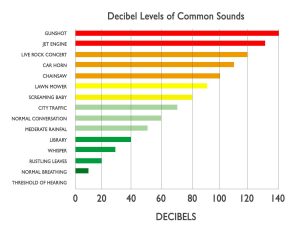 Stephen Geller Katz LCSW-R
Stephen Geller Katz LCSW-R
Misophonia Cognitive Retraining Therapy
 Stephen Geller Katz LCSW-R
Stephen Geller Katz LCSW-RMisophonia Cognitive Retraining Therapy
Misophonia Cognitive Retraining Therapy, as featured on the MTV True Life episode: “I Have Misophonia” premiering Friday, December 16th, 7:00 PM EST. See Clip >
|
|
|
| Moderate to severe anxiety triggered by chewing sounds, including: | ||
|
|
|
You may also be affected by visual stimuli, such as repetitive foot or body movements, fidgeting or movement you observe out of the corners of their eyes. Intense anxiety, rage and avoidant behavior may develop as a result of misophonia.
 * Do you feel your family and friends don’t understand how much you suffer?
* Do you feel your family and friends don’t understand how much you suffer?
* Do you often feel you can just suffer through a social event where there is eating present only to find that you must “escape” before you have a panic attack?
* Do you find that some people are at first understanding and make some efforts not to make the triggering sounds in front of you, but soon forget and constantly have to be reminded, causing you to feel angry, anxious and depressed?
* Are you avoiding social activities that you enjoy because of the misophonia?
* Are you fearful of losing your job and/or is the misophonia effecting your job performance?
You may be a candidate for Misophonia Cognitive Retraining Therapy, or MCRT.
Stephen Geller Katz, LCSW-R, with over 20 years of clinical experience, a New York University graduate, developed Misophonia Cognitive Retraining Therapy and founded Misophonia Cognitive Center™ in response to the growing number of people with Misophonia coming to his private practice from audiologists and ENTs. He discovered that by helping people to retrain and reinterpret the thoughts around their Misophonia, anxiety and depression symptoms began to improve. But even more important so did the Misophonic trigger response.
Misophonia is a very common disorder around the world. Around 20% of the world population is suffering from misophonia. Around 80% of the misophonia sufferers suffer from the same kind of misophonia. Misophonia, in simple words, is hatred towards everyday life sounds. The sound may or may not be repetitive. One similarity amongst all trigger sounds is that they are soft but they can also be loud. Trigger sounds are the phonic stimulus that may integrate a response.
When you talk about misophonia, every case is very different from one another. Every sufferer has a distinct trigger sound as well as distinct levels of response. Some people have a very intense response towards the trigger sounds, and some respond in a very mild way.

Misophonia was earlier called 4S or selective sound syndrome in 1997. Many researchers say it is a better name for misophonia because misophonia is not hatred towards all kinds of sound. It is a dislike of selective sounds.
Many people do not know this, but misophonia is not only dislike towards the specific sounds but the sufferer might also get triggered by specific visual stimuli. These visual stimuli are mostly repetitive actions. If you have misophonia, the swinging legs, the pendulum motion, constant typing, and actions like that may trigger you.
There are many people who confuse between misophonia and hyperacusis. It basically sensitivity towards various volumes, intensities, and types of sounds. You develop Hyperacusis while you’re a child but in some cases, you might develop it in your adulthood years. The healthcare provider will check your hyperacusis with various tests like measuring various volumes and see what volume becomes irritating. There are many treatments given for hyperacusis.
Many people also confuse it with phonophobia. It is when you get scared of certain types of sounds. When you have misophonia, you do not get scared of the sound rather than that the sound irritates you and make you want to go away from the origin.
If your child is unable to tolerate loud sounds, it may be because your child is suffering from sensory processing disorder (SPD). In this condition, the person will have a problem with various sensory stimuli. It may be of touch, taste, sight, sound, and smell. SPD causes high sensitivity towards the stimuli. This is a separated disorder and it has no link with misophonia. in this disorder, your child will react as if he has hyperacusis or phonophobia. When you notice such reactions, you need you to take your child to a health care provider.
Hyperacusis and phonophobia are common autistic children. Loud sounds likewise of a toilet flush, vacuum cleaner, and siren scare them. But then you have misophonia. The trigger sounds annoy you. A simple daily life sound feels like nails on a chalkboard.
DSM is the most prestigious guidebooks for psychological sciences. In the guide book, there is no mention of misophonia. Many people are trying to get it in the book because misophonia qualifies many various disorder criteria. There are many pieces of research and pieces of evidence that support the fact that it is a disorder but DSM looks over it.
There are various reasons for not putting misophonia in the book because, until now, the cause of misophonia is unclear. There are various researches that consider misophonia as a symptom and others say that it is a disorder.
Many researchers say misophonia might become a part of future DSM and ICD editions. The researchers are still researching on the topic. The main issue that arises for putting it in the book is that the researchers cannot decide whether misophonia is a disorder itself or is it a key feature of some other broader syndrome. The psychiatrists are trying to draw a roadmap for its systematic evaluation.
When it comes to misophonia, the main diagnosis about misophonia is that you dislike certain sounds. The trigger sounds are specific sounds which a person cannot stand at all. Some people have a relatively severe response to the sounds, but some people have relatively mild reactions. It entirely based on your tolerance.
There are many disorders that are similar to misophonia. People confuse them with it. Many people even say that misophonia is a kind of OCD.
Call Stephen Katz at the
 If you’ve never heard of misophonia or what a sound and noise disorder is, you may be unfamiliar with a rare population of individuals who suffer daily from severe symptoms of panic, anxiety, and generalized distress. Approximately less than 200,000 people in the United States alone suffers from misophonia, accounting for a total of 0.07 percent of the population. This extremely rare disorder can cause great distress for this population of people. Because of its rarity, sufferers may not even be familiar that what syndrome they are dealing with is truly acknowledged by the medical society as a disorder.
If you’ve never heard of misophonia or what a sound and noise disorder is, you may be unfamiliar with a rare population of individuals who suffer daily from severe symptoms of panic, anxiety, and generalized distress. Approximately less than 200,000 people in the United States alone suffers from misophonia, accounting for a total of 0.07 percent of the population. This extremely rare disorder can cause great distress for this population of people. Because of its rarity, sufferers may not even be familiar that what syndrome they are dealing with is truly acknowledged by the medical society as a disorder.
If you are unfamiliar with misophonia, you may suffer and not even know. We can help you understand the most common symptoms and signs associated with misophonia to better grasp if you may suffer from this rare illness.
Misophonia is a rare disorder that effects the way you process sounds around you and in your environment. Any sound can trigger symptoms and they all depend on how the individual person was raised. Some sounds can be more triggering than others, and the levels of symptoms relate directly to how much the person is triggered.
Common noises like a dripping faucet or the chewing of food can lead to high amounts of stress and anxiety in people with misophonia. The sooner you are able to identify symptoms and signs associated with misophonia, you may be able to determine if you are one of the few people in the world who deal with the syndrome.
When you first visit a doctor in hopes of identifying yourself with the stressful disorder of misophonia, the first questions will relate to the signs you have experienced. Signs and triggers of misophonia are different for different people, so depending on how you were raised, you may experience different ones than someone else who is already diagnosed with misophonia. Because of this, it is difficult to develop a comprehensive list of signs related to it.
Thankfully, statistics show common signs that can be related across the spectrum of those diagnosed with misophonia. Some of these signs include irritability when exposed to certain noises, sensitivity to specific sounds like tapping, bouncing, quiet hums, and specific words, and even constant fear of the public due to the inability to control your surroundings. If you are experiencing these signs, keep reading for significant symptoms related to them.
 Symptoms of misophonia differ from the signs of them, as symptoms directly relate to your actions associated with them. There are plenty of documented symptoms related to this syndrome and can range depending on the severity of your diagnosis. Some of the most common or frequently seen symptoms of misophonia include but are not limited to fear, rage, anxiety, emotional outbursts, or even feeling depressed or suicidal. Regardless of your symptoms, there are ways to treat them and allow you to live a calmer and more sound-tolerant life.
Symptoms of misophonia differ from the signs of them, as symptoms directly relate to your actions associated with them. There are plenty of documented symptoms related to this syndrome and can range depending on the severity of your diagnosis. Some of the most common or frequently seen symptoms of misophonia include but are not limited to fear, rage, anxiety, emotional outbursts, or even feeling depressed or suicidal. Regardless of your symptoms, there are ways to treat them and allow you to live a calmer and more sound-tolerant life.
If while reading the above passages you recognized both signs and symptoms of misophonia that are present in your life, you may greatly benefit from visiting a sound disorder specialist like us here at Misophonia Cognitive Center.
Steven Katz LCSW is a top NYC misophonia specialist who can help identify your disorder and how to help you and your symptoms. Contact us today to schedule an appointment and allow you to have a happier, more comfortable life!
 Do you wake up in the morning and immediately notice the irritating sound of the fan blowing in the distance? What about the faint hum of the bathroom light that wasn’t turned off after your family member used it last? How about the ticking of the clock you have hanging on the wall? If these are common experiences for you, or if you can relate to them in some way, you may be suffering with a syndrome called misophonia. You may have never even heard of misophonia before, but that’s okay. It is a very rare syndrome and disorder that has less than 200,000 cases in the United States alone. That’s just about 0.1 percent of the population. No wonder why you’re unfamiliar with it! But this means you are not alone in what you may be experiencing. If common sounds make you go crazy and you are unsure of why, you may have misophonia. Let’s take a deeper look into this syndrome in order to better understand what you may be living with.
Do you wake up in the morning and immediately notice the irritating sound of the fan blowing in the distance? What about the faint hum of the bathroom light that wasn’t turned off after your family member used it last? How about the ticking of the clock you have hanging on the wall? If these are common experiences for you, or if you can relate to them in some way, you may be suffering with a syndrome called misophonia. You may have never even heard of misophonia before, but that’s okay. It is a very rare syndrome and disorder that has less than 200,000 cases in the United States alone. That’s just about 0.1 percent of the population. No wonder why you’re unfamiliar with it! But this means you are not alone in what you may be experiencing. If common sounds make you go crazy and you are unsure of why, you may have misophonia. Let’s take a deeper look into this syndrome in order to better understand what you may be living with.
As mentioned above, misophonia is a rare noise disorder that affects a very small portion of the population. Because of this, identification was difficult at first and often grouped in with anxiety disorders. Thankfully, medical advances and technological improvements have helped doctors and psychologists identify exactly what misophonia was. Misophonia is based solely on external factors and triggers that directly cause your symptoms. Some symptoms individuals may be worse than others and this solely depends on your environment. If small daily noises significantly aggravate you and lead to symptoms or feelings of rage, panic, or even depression, you may be dealing with misophonia.
 Misophonia triggers vary vastly from person to person and therefore it may be difficult to comprise a comprehensive list of trigger noises or sounds. However, after studies have been conducted and statistics were measured, some sounds can be seen as more triggering than others. These noises can include the sound of chewing, a dripping faucet, yawning, teeth sucking, clock ticking, tapping, and even throat clearing. How people with misophonia feel can be related to when thinking of the sound of nails across a chalkboard. This irritated and squeamish feeling is what those who suffer deal with on a daily, but it causes them significant frustration and emotional results.
Misophonia triggers vary vastly from person to person and therefore it may be difficult to comprise a comprehensive list of trigger noises or sounds. However, after studies have been conducted and statistics were measured, some sounds can be seen as more triggering than others. These noises can include the sound of chewing, a dripping faucet, yawning, teeth sucking, clock ticking, tapping, and even throat clearing. How people with misophonia feel can be related to when thinking of the sound of nails across a chalkboard. This irritated and squeamish feeling is what those who suffer deal with on a daily, but it causes them significant frustration and emotional results.
There are various potential treatment options available to you if you suffer from misophonia. The options depend on how severe or significant your case is and the approach that your doctor or phycologist recommends most. The most typical treatment options include wearing earplugs, behind ear sound projectors, or partaking in therapies like cognitive behavioral therapy or even tinnitus retraining therapy. The best way to identify the treatment that works best for you is by taking with your doctor to determine what situations might improve your condition most. There are many treatment options not listed above, and plenty other ones are forming across the medical community.
If you believe that you may be suffering with misophonia, Steven Katz LCSW, a top misophonia specialist in NYC, can help you out. Be sure to contact us at the Misophonia Cognitive Center to schedule an appointment today. We can help you identify whether or not you may be suffering from misophonia and the best potential treatment options for you. Stop living in fear of all the beautiful noises around you and seek help today!
Misophonia is a situation in which you cannot tolerate certain sounds. In return, you react to it very harshly by shouting at the person who is making sounds or physically beating the person. Although doctors have introduced many reports, some people are still unclear about what this disease is. However, due to past experiences, some symptoms have been found to tell the people aware that they are suffering from a particular disease. Mentioned below are the things you should do to know that you are suffering from a disease.
First and foremost, determine whether you are sensitive to certain sounds or not. People with Misophonia can find any sound annoying, mostly those which normal people do not even notice. These may be tapping a table, chewing food, and using a keyboard. This is the first sign to show that you have Misophonia.
Secondly, check what your reaction is when you hear sounds that you feel are annoying. The main difference between a normal person and the one suffering from Misophonia is the reaction. If you are suffering from this disease, you would become angry, or cry if you hear any abnormal sound. This is the second most important symptom of Misophonia.
Moreover, you must ensure that the sounds you hear are completely real. Anyone sitting near you can ask this. However, if the other person does not hear anything, this is a rather dangerous disease. It is called schizophrenia, in which you hear sounds that are not there. In this situation, schedule an appointment with your doctor as soon as possible.
Furthermore, you should also know that many other diseases have almost the same symptoms but are different. Quite similar diseases include Phonophobia and Hyperacusis. These also have similar symptoms but are slightly different.
You must look at the sounds that disturb you during the day. Most people are bothered by coughing, sniffing, breathing, and chewing, etc. People with this disease are also able to make sounds and reactions that are different. They feel the most comfortable with those whom they are the closest with. Moreover, it is important to understand that logical reasoning might fail here as the people do not have control of themselves.
Once you are sure that you are suffering from Misophonia, you should visit a health professional. It is possible that some doctors might not be able to cure this disease. However, they might refer some other doctor. A good option to stop getting affected by this disease is to use headphones or earplugs more often.
Once you follow these rules properly, there is a high possibility that you will live a healthy, balanced life. Moreover, you should also try to educate others who are suffering from this disease. As you have gone through this, it would be much easier for you to console and help others to get over it.